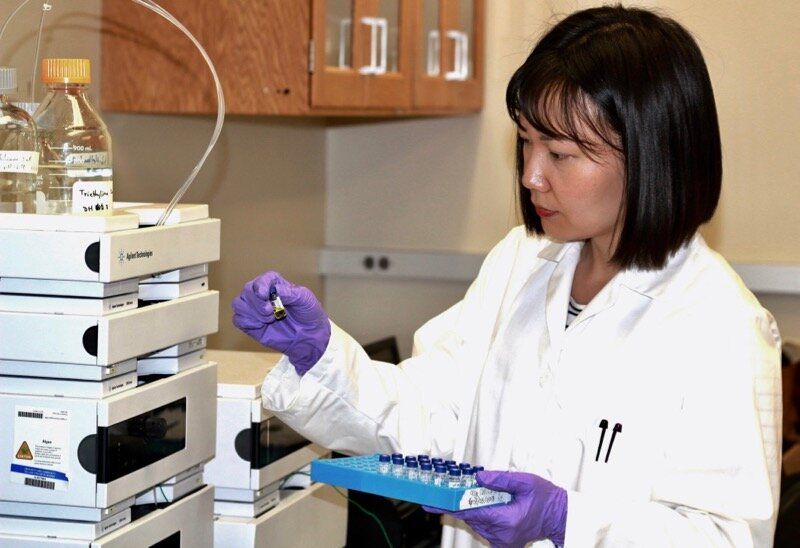A common species of freshwater green algae is capable of removing certain endocrine disrupting chemicals (EDCs) from wastewater, according to new research from the Desert Research Institute (DRI) in Las Vegas.
EDCs are natural hormones and can also be found in many plastics and pharmaceuticals. They are known to be harmful to wildlife, and to humans in large concentrations, resulting in negative health effects such as lowered fertility and increased incidence of certain cancers. They have been found in trace amounts (parts per trillion to parts per billion) in treated wastewater, and also have been detected in water samples collected from Lake Mead.
In a new study published in the journal Environmental Pollution, DRI researchers Xuelian Bai, Ph.D., and Kumud Acharya, Ph.D., explore the potential for use of a species of freshwater green algae called Nannochloris to remove EDCs from treated wastewater.
